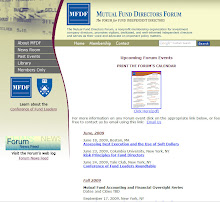On Friday, January 9, the Congressional Oversight Panel issued the second in its series of reports required under the Emergency Economic Stabilization Act (EESA). The Panel's first report, dated December 10, 2008, consisted of a series of questions posed to the Treasury Department about the exercise of its authority under EESA, and setting the framework for the related areas of inquiry that the Panel intends to pursue. On December 30, the Treasury released a document in response. The Panel's second report poses few new questions, but rather reiterates some questions from the previous report or requests additional clarification from Treasury:
The bulk of the Panel's second report is made up of a grid or matrix laying out which of the Panel's questions have been addressed, summarizing the responses, and highlighting the questions the Panel feels remain unanswered. Elizabeth Warren, the Chair of the Oversight Panel said in her video introduction to the Panel's second report:
As with the first of the Panel's reports, Panel member, Representative Jeb Hensarling (R-TX), did not approve the report.
The short video introducing the second report is available through this link: http://cop.senate.gov/blog/entries/blog-010909-welcome.cfm
The full text of the Oversight Panel's second report is available here: http://cop.senate.gov/documents/cop-010909-report.pdf
While the letter provided responses to some of the Panel’s questions and shed light on Treasury’s decision-making process, it did not provide complete answers to several of the questions and failed to address a number of the questions at all. To gain a more complete understanding of what Treasury is doing and why, the Panel asks Treasury to provide additional information clarifying its earlier responses.
The bulk of the Panel's second report is made up of a grid or matrix laying out which of the Panel's questions have been addressed, summarizing the responses, and highlighting the questions the Panel feels remain unanswered. Elizabeth Warren, the Chair of the Oversight Panel said in her video introduction to the Panel's second report:
Because the questions we asked one month ago are important as ever, in this second report we lay out exactly what questions have been answered, what haven’t been answered and why these questions are important.The report highlights four key areas that demand special attention:
The American people have a right to know how their taxpayer dollars are being used, and so far, they have not gotten the transparency and accountability they deserve.
- Bank Accountability – the Panel still does not know what banks are doing with the taxpayer money they have received.
- Transparency – confidence in markets can only be restored when information is transparent and reliable, but we still have no clear mechanism to ensure transparent and accurate asset valuation and no confidence that the dangers posed by toxic assets have been addressed.
- Foreclosures – Treasury has yet to take any steps to use TARP funds or develop plans to “maximize assistance to homeowners,” as required by law.
- Overall Strategy – Treasury’s shifting explanations for its purposes and the tools used have exacerbated the Panel’s concern that Treasury does not have a coherent overall strategy and goals for use of the TARP funds.
As with the first of the Panel's reports, Panel member, Representative Jeb Hensarling (R-TX), did not approve the report.
The short video introducing the second report is available through this link: http://cop.senate.gov/blog/entries/blog-010909-welcome.cfm
The full text of the Oversight Panel's second report is available here: http://cop.senate.gov/documents/cop-010909-report.pdf





